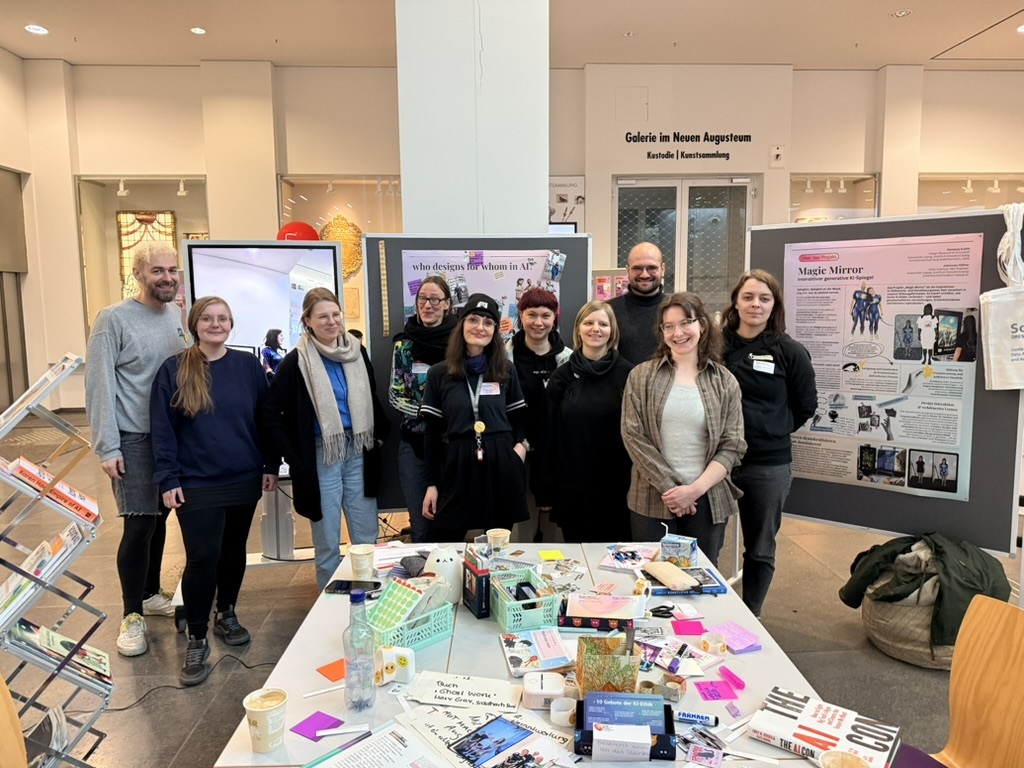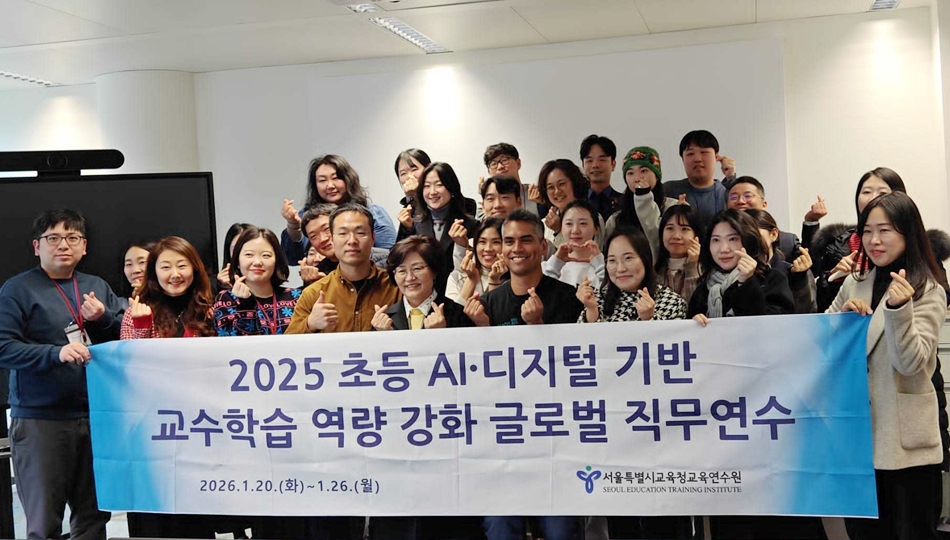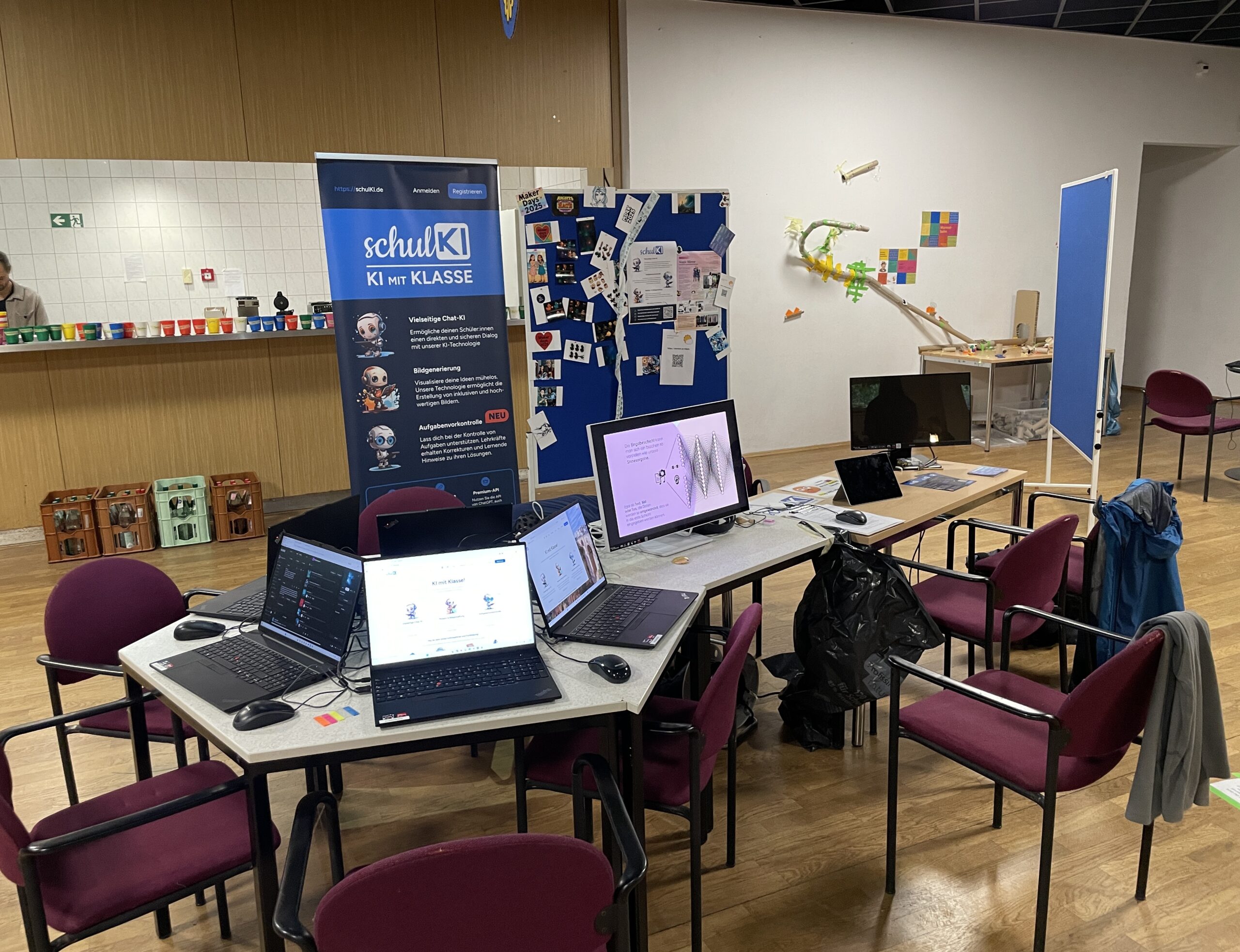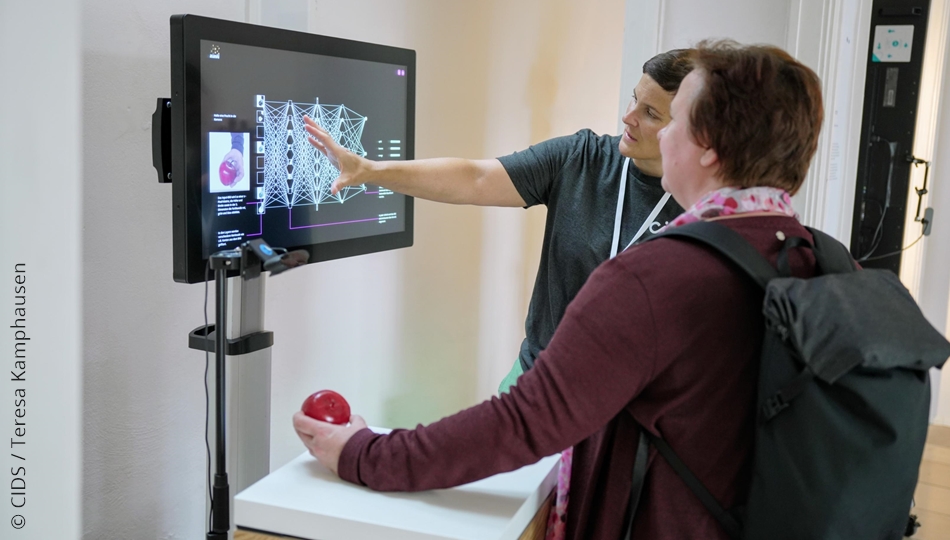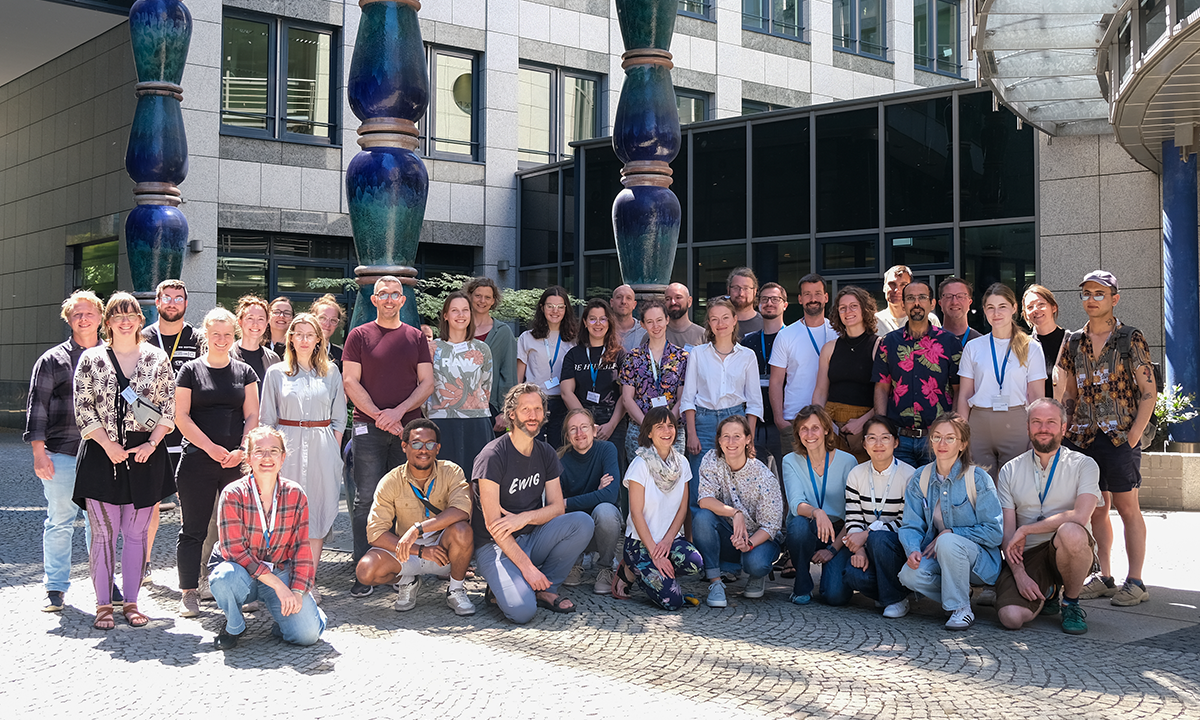
May 23, 2024
Bio-Image Data Science Training School 2024

From May 13th to 15th the first Training School on Bio-Image Data Science took place at ScaDS.AI in Leipzig. About 30 participants registered for the three-day training, which focused on bio-image analysis and data science in the context of fluorescence microscopy imaging data and downstream analysis. The aim of the course was to train life-scientists with an interest in bio-image data science in basic Python, advanced image analysis and machine learning.
The training materials are available open access.
Monday, May 13th
After a short welcome by Robert Haase on the first day of the training, the participants received an introduction to the basics of the Python programming language by Matthias Täschner. Further introductory sessions followed in the afternoon, e.g. on the topics “File editing + image loading/visualization” and “Image processing”, presented by our researchers Anja Neumann and Marie-Sophie von Braun. This created a common basis for the following days, with a program going trough the various stages of a data analysis workflow. The day ended with the participants working on their own data and discussing and exchanging ideas with experts.
Tuesday, May 14th
On the morning of the second day, the topics ‘Image Segmentation’, ‘Feature Extraction’ and ‘Machine Learning’ were covered by Robert Haase, Matthias Täschner, Christian Martin and Anja Neumann. After a short coffee break in the afternoon the participants got some insights into ‘Tabular Data Wrangling using Pandas’. Later in the evening, they were also able to get into conversation at a scientific networking event.
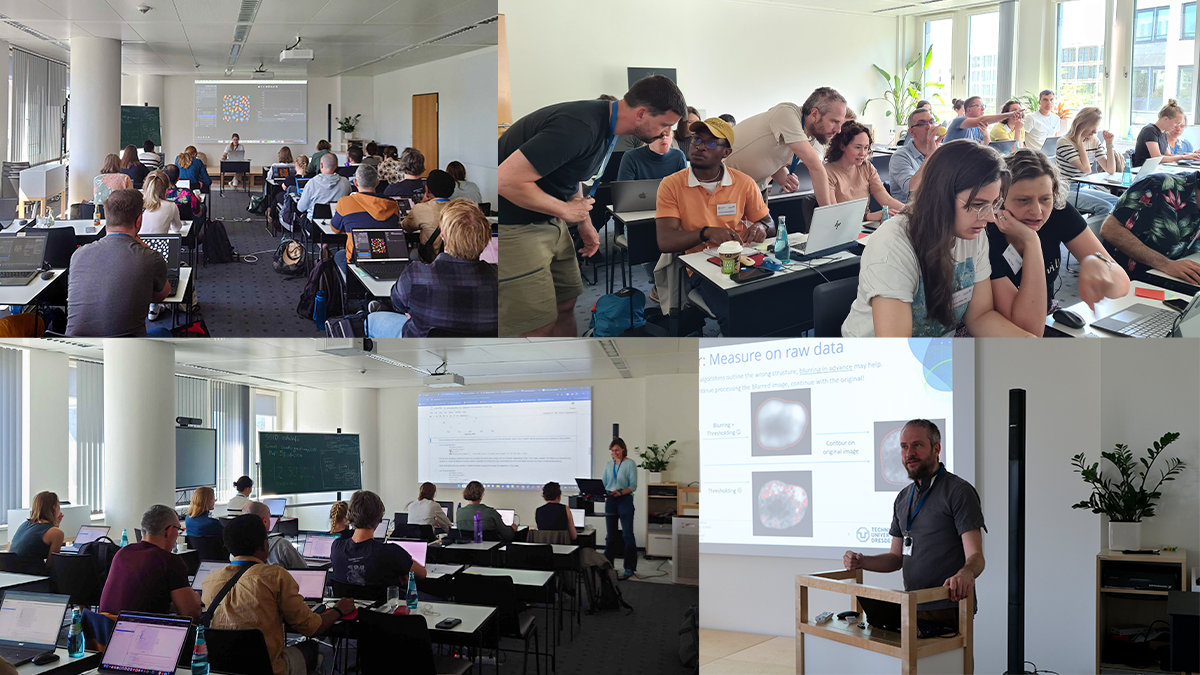
Wednesday, May 15th
The last day started with a session on the topic ‘Explorative Data Science, Unsupervised Machine Learning’, held by Matthias Täschner and Laura Žigutytė, who visited us from the Clinical AI group of Prof. Kather at TU Dresden. This was followed by a session by Jan Ewald, Laura Žigutytė and Dušan Praščević on ‘Data Visualization Theory’. Before the wrap up and a final opportunity to work with their own data, Marie-Sophie von Braun an Jan Ewald gave an overview of ‘Plotting using Seaborn’.
All in all, it was a very successful event that provided the participants with a wealth of knowledge and resources from which they can draw for their current and future research. We would like to thank both the participants for attending and all our colleagues who shared their knowledge and made the event possible.

